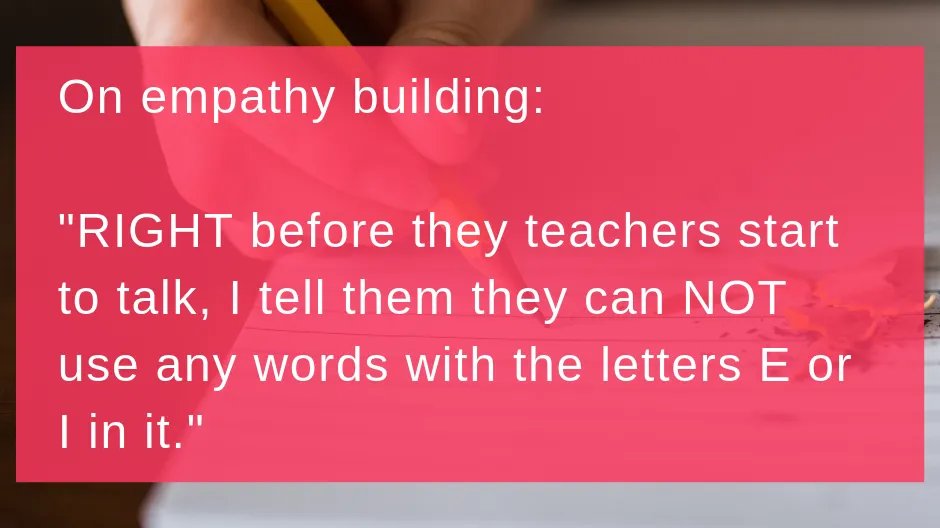Specialist Spotlight: The Power of the Written Word and Building Empathy with Diana West from Rome City Schools, GA


Specialist Spotlight: The Power of the Written Word and Building Empathy with Diana West from Rome City Schools, GA
Diana West currently serves as an ESOL Specialist in Rome City Schools, Georgia where she has been teaching for 27 years. After teaching high school English for many years, this is her sixth year as an ESOL teacher. She continues to share her passion for supporting learners at all levels to grow as writers. As a published poet, Diana is constantly trying to find ways that support the use of art and creative activities to enhance student learning.
1) How are you using Ellevation Strategies to support your colleagues who have ELLs in their classes?
I love sharing the useful and user-friendly Ellevation strategies with my colleagues as well as using them in my own ELL classes! When a teacher needs some support or even has a question, Ellevation provides us with the help we need.
2) What is your favorite instructional activity or one you recommend frequently? Why?
To pick a favorite strategy is nearly impossible, but I love Word Walls - especially for new words in literature. For example: The word "headquarters" really confused my 3rd grade ELLs as well as some non-ELLs. I asked them to draw a picture of what they thought it meant and the results were surprising, to say the least. They drew pictures of heads with quarters flying around them or heads cut into 4 pieces!
Additionally, in my ELL classes, the older students have their own dictionary in their notebooks where they write down the new words and draw a picture to help them remember the correct definition. 360° Words is an engaging activity which supports this type of vocabulary learning, plus it has a kinesthetic component to help further reinforce new words and concepts. These supports help the students when they do independent writing. The students don't have to ask 'how do you spell...'before I even pre-teach new vocab.
I also create lists of words from the books I have pre-read that I think the students might have trouble with, then in small groups have them draw a 'guess' of what the word means. After that, I put the new word on the word wall with the correct definition. Co-creating Anchor Charts as a great tool as well.
3) What is one of your favorite techniques that you employ when working with classroom teachers to help them better understand and teach ELLs?
One way I strive to build empathy with my classroom teachers is to ask them to think of a perfect vacation or ideal meal, give them about 1 minute of wait/think time and then RIGHT before they start to talk, tell them they can NOT use any words with the letters E or I in it. Of course, they are left speechless. I start to put a bit of pressure on them by re-asking the question, looking at my watch and asking again in a louder voice (as if that helps!).
If a teacher does manage to get a sentence out-it is very fractured consisting of two or three words at which point, I remind them that I want a "complete good sentence" and wait about another minute. I then tell them that I know they have really good ideas but are left in silence. This is how their students feel. They have the answer in their head but just can't get it out.
I also write the following sentence on an index card - I then 'test' one or two teachers at a time, telling them it is a reading test.
Paris in the
the spring
I have them read the words aloud and almost always they miss the repitition of the word "the", even after reading it several times. The teachers then try changing the way Paris or how "the" is pronounced. Finally, I have them read it word by word and when they see the second "the", they are usually shocked. Again, I remind them that this is how their students feel.